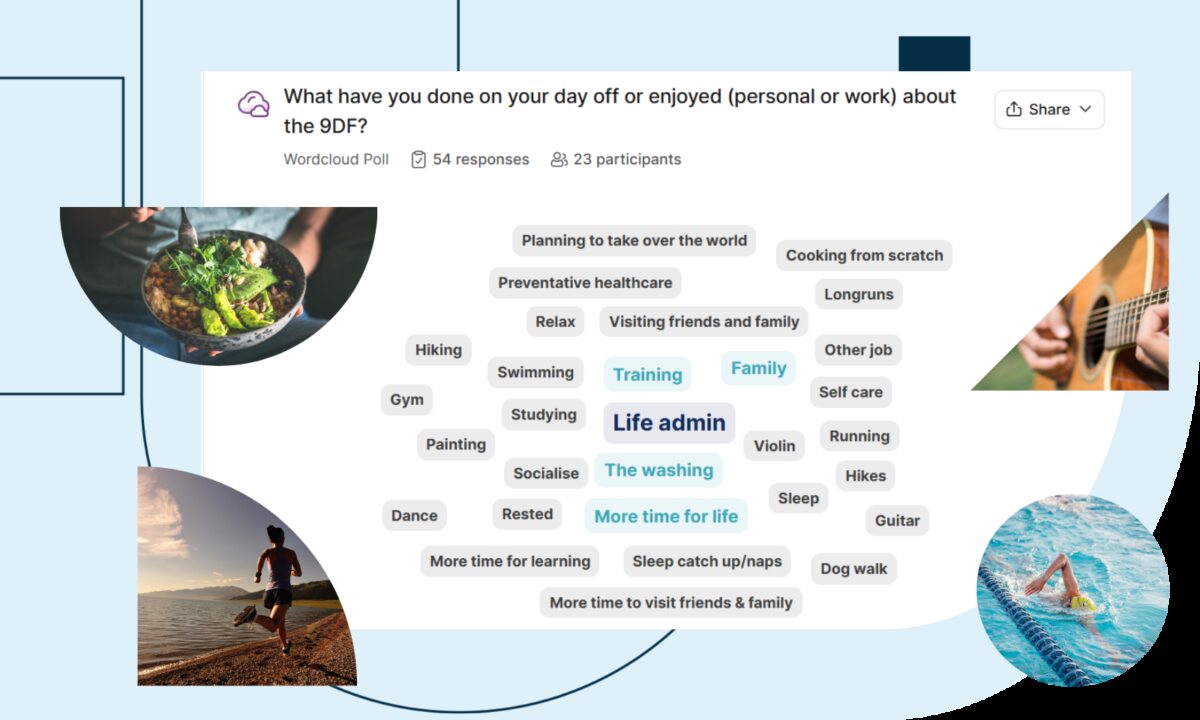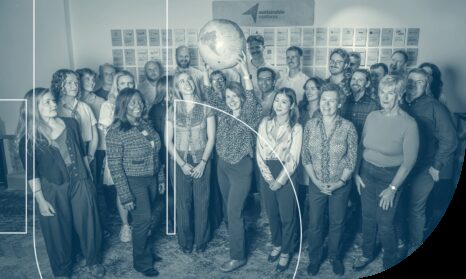We tried a 9-day fortnight at full pay – here's what we learned
Last November, we announced we were joining the UK’s second reduced working hours pilot, run by the 4-day week Foundation.
We’re proud of our rich history of big ideas, forward-thinking attitudes and our proven track record of innovation – and we felt that this pilot was another step in that journey.
We did as much prep, workshopping and internal discussion as we could in the preceding months, but I won’t lie – when it came to the week before the trial, we were a little apprehensive about what was coming.
What were the challenges?

As a consultancy that bills by the day, there was a set of unique challenges. Would we get the work done on time, to the same high standard? Would we keep our staff and clients happy?
We tried reframing it – as one of our biggest internal advocates said – a six-month trial dropping two days a month is just like doing April and May three times (each month has two bank holidays). And we’ve been going for 30 years, and we have survived April and May many, many times – so that made it feel far less intimidating.
...participants were 45% more satisfied with life.
The national trial
First: what were the results of the national trial?
Let’s jump to the headline stat: 100% of participating organisations are sticking with it (Guardian) in one form or another. It’s fair to say that’s a pretty good success rate!
One of my favourite stats from the wider trial is that participants were 45% more satisfied with life. If that's not what it's all about, then why are we even here?
So, how did we get on?
Firstly, it’s worth noting that the data we have so far is based on a small sample size of 14 staff members, specifically those who consistently filled in the survey over the 6-month pilot. However, we’ve been told that the metrics can be viewed as statistically significant, particularly when compared to the rest of the wider study.
Our burnout reduction is both strong and statistically significant. And so are our satisfaction improvements - just at a lower level of statistical confidence. On work stress, fatigue, and mental and physical health, we outperformed the trial.
The one area where we deviated from other results is on self-rated work ability. That didn't rise at all. The researcher said, “Are your folks just modest?” I guess we are!
Our burnout reduction is both strong and statistically significant
Four of us agreed to a deeper analysis by Sussex University, which included hopping into a brain scanner and undertaking tasks. Here are the results of that, which were all positive:
Staff wellbeing
- Subjective wellbeing ↑ 15%
- Psychological detachment ↑ 15%
- Physical activity ↑ 15%
- Burnout ↓ 14%
- Body stress perception ↓ 12%
- Positive emotions ↑ 11%
- Negative emotions ↓ 10%
Experience at work
- Work engagement ↑ 14%
- Intention to leave ↓ 13%
- Task performance ↑ 12%
Revenue
It was potentially one of the biggest fear factors going into the trial... but our revenue stayed broadly the same year-on-year!
Staff recruitment/retention
The data is fairly limited on this so far, beyond the impressive 13% reduction in intention to leave above. However, we have had some useful indicators from the popularity of our job posts, as coincidentally, we advertised for the exact same role before and during the trial.
In just two weeks during the trial, we had 30% more visitors to our job page compared to the previous round, which was live for two months.
And anecdotally, from some of our new (incredibly talented) staff, it was one of the key drivers for applying.
What did we do with all our extra time?
Three months in, we surveyed our staff to check we were on the right track.
- 95% wanted to continue, with 5% a ‘maybe’ (that’s just 1 person).
- 84% said it was 'awesome’, while 16% said they were ‘still getting into it’ (4 people). Nobody said they didn’t like it.
And in terms of the qualitative data, it was wonderful to see what people were getting up to. Once you got beyond the obligatory life admin and washing, ‘more time for life’, and spending more time with family were genuinely inspiring to see. And with all the extra music practice going on, we're hoping to play Glastonbury next year too.

What’s next?
We’re excited to be extending our trial for another six months. Everything is looking really positive so far, but we need a little more data on areas such as staff sickness, recruitment and retention to be sure of our progress.
Interested in joining a purpose-led consultancy and working a 9-day fortnight for full pay? Be the first to hear when we’re next recruiting – sign up to our careers mailer and follow us on Linkedin.








